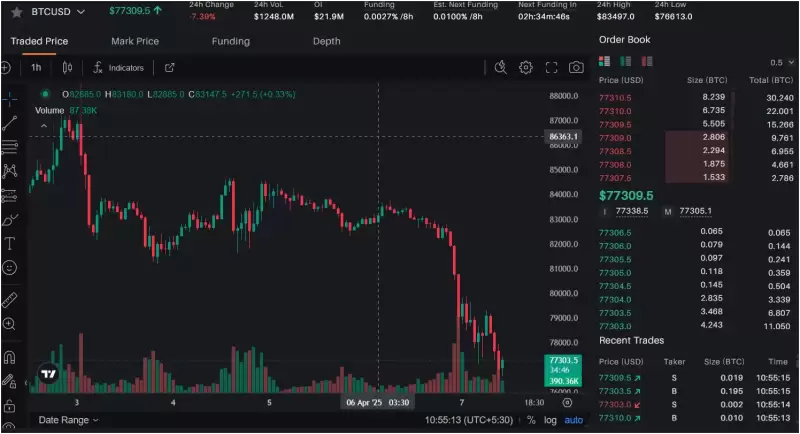 |
|
 |
|
 |
|
 |
|
 |
|
 |
|
 |
|
 |
|
 |
|
 |
|
 |
|
 |
|
 |
|
 |
|
 |
|
全球经济格局正在不断变化,最新的中断之一来自美国前总统唐纳德·特朗普(Donald Trump)的关税

The global economic landscape is in a state of flux, with one of the latest disruptions coming from former U.S. President Donald Trump’s imposition of tariffs, including a 10% baseline tariff effective from April 9.
全球经济格局处于不断变化状态,其中最新的中断来自美国前总统唐纳德·特朗普(Donald Trump)对关税的征收,其中包括4月9日起10%的基线关税。
These tariffs could have far-reaching consequences for countries within the BRICS bloc (Brazil, Russia, India, China, and South Africa). As the world’s second-largest economy, China, and other BRICS nations grapple with the effects of these tariffs, the question arises: Can BRICS emerge victorious from Trump’s tariff policies?
这些关税可能会对金砖四国(巴西,俄罗斯,印度,中国和南非)的国家产生深远的影响。作为世界第二大经济体,中国和其他金砖国家国家应对这些关税的影响,问题出现了:金砖国家能否从特朗普的关税政策中获得胜利?
Trump’s tariffs, particularly those targeting imports from China, have been a significant point of contention in international trade. His “America First” approach led to a trade war, especially with China, which is a major U.S. trade partner. These tariffs were designed to curb China’s trade surplus with the U.S. and encourage more domestic production in the United States. However, as the tariffs spread to other regions, the BRICS nations found themselves in the spotlight as potential losers in the global trade battle.
特朗普的关税,尤其是针对中国进口的关税,这是国际贸易中的重要争议点。他的“美国第一”方法导致了贸易战,尤其是与美国的主要贸易伙伴的中国。这些关税旨在遏制中国与美国的贸易盈余,并鼓励美国更多的国内生产。但是,随着关税蔓延到其他地区,金砖国家将自己视为全球贸易斗争中潜在的失败者。
For China, Trump’s tariffs have directly impacted its exports to the U.S. This means that China may need to shift its trade focus to other markets. However, this has opened up opportunities for BRICS nations in terms of forging deeper trade relations within the group and with emerging markets. With the shift in global supply chains, there is potential for BRICS nations to capitalize on this disruption.
对于中国来说,特朗普的关税直接影响了对美国的出口,这意味着中国可能需要将其贸易重点转移到其他市场。但是,这已经为整个集团内部和新兴市场建立了更深层次的贸易关系而为金砖国家打开了机会。随着全球供应链的变化,金砖国家有可能利用这种破坏。
One of the key advantages that BRICS could gain from Trump’s tariffs is the potential for deeper economic integration within the bloc. Historically, BRICS countries have sought to strengthen their economic ties and reduce dependency on the West. With Trump’s tariffs limiting trade between the U.S. and China, countries within the BRICS group could step in to fill the void by enhancing intra-BRICS trade. This could lead to a more resilient, diversified economy for these nations, less reliant on the U.S. and Europe.
国际足联可以从特朗普的关税中获得的主要优势之一是集团内部更深入的经济融合的潜力。从历史上看,金砖国家试图加强其经济联系并减少对西方的依赖。随着特朗普的关税限制了美国与中国之间的贸易,金砖国家组织内部的国家可以通过增强大脑内部贸易来填补空白。这可能会导致这些国家的更具弹性,多样化的经济,对美国和欧洲的依赖程度较低。
BRICS nations could also benefit from the diversification of supply chains. The trade war initiated by Trump has caused many countries to reconsider their reliance on China and the U.S. for manufacturing and supply chains. BRICS countries, especially India, Brazil, and South Africa, could benefit from this shift. India, for instance, has the potential to attract more manufacturing businesses as companies look for alternatives to China. Brazil could see a boost in its agricultural exports to countries that were previously reliant on Chinese imports. South Africa, with its abundant resources, might emerge as an important player in the global supply chain.
金砖国家也可以从供应链的多元化中受益。特朗普发起的贸易战使许多国家重新考虑了对中国和美国在制造和供应链中的依赖。金砖国家,尤其是印度,巴西和南非,可以从这一转变中受益。例如,印度有可能吸引更多的制造业业务,因为公司寻找中国的替代品。巴西可以看到其对以前依赖中国进口的国家的农业出口。南非拥有丰富的资源,可能会成为全球供应链中的重要参与者。
Moreover, Trump’s tariffs have sparked frustration among other nations in the developing world who feel disadvantaged by U.S. trade policies. As a result, BRICS nations, particularly Brazil, Russia, and India, might find themselves in a better position to cultivate diplomatic and economic ties with these frustrated nations. Through initiatives like the New Development Bank (NDB), BRICS could leverage its collective influence to forge stronger partnerships with developing countries, offering them an alternative to Western-dominated financial institutions.
此外,特朗普的关税激发了发展中国家的其他国家的挫败感,这些国家感到被美国贸易政策不利。结果,金砖国家,尤其是巴西,俄罗斯和印度,可能会发现自己处于更好的位置,可以与这些沮丧的国家建立外交和经济联系。通过诸如新开发银行(NDB)之类的倡议,金砖国家可以利用其集体影响力与发展中国家建立更牢固的伙伴关系,为它们提供了以西方为主的金融机构的替代品。
Another interesting development to watch is BRICS’s push for a new global reserve currency. One of the more ambitious long-term goals of BRICS is to challenge the dominance of the U.S. dollar in global trade and finance. With the U.S. imposing tariffs and shifting towards a more protectionist stance, BRICS could accelerate efforts to diversify the global reserve currency system. The idea of creating a BRICS-backed currency or increasing the use of the Chinese yuan in global trade could gain momentum in the coming years. Countries outside the bloc may view this as a viable alternative to U.S. economic hegemony.
值得关注的另一个有趣的发展是国际公路(Brics)推动新的全球储备货币。金砖国家的长期目标之一是挑战美元在全球贸易和金融方面的统治地位。随着美国对更具保护主义的立场施加关税并转移,金砖国家可以加速使全球储备货币体系多样化的努力。在未来几年中,建立一个金砖国家支持的货币或增加中国人民币在全球贸易中使用的想法可能会带来动力。集团以外的国家可能认为这是美国经济霸权的可行替代品。
However, despite these opportunities, the BRICS nations face several hurdles in fully capitalizing on Trump’s tariffs.
然而,尽管有这些机会,但金砖国家在充分利用特朗普的关税方面面临了几个障碍。
Some BRICS nations, like Brazil and South Africa, face political instability, which could undermine their ability to attract investment and maintain steady economic growth. Political uncertainty could hinder the ability of these nations to implement necessary reforms and take full advantage of the shifting global trade patterns.
一些金砖国家(如巴西和南非)面临政治动荡,这可能会破坏其吸引投资并维持稳定经济增长的能力。政治不确定性可能会阻碍这些国家实施必要的改革并充分利用不断变化的全球贸易模式的能力。
Several BRICS nations, particularly Brazil, Russia, and South Africa, remain heavily dependent on commodity exports like oil, metals, and agricultural products. While these exports may see demand increases, price volatility could undermine the long-term benefits of tariff-induced shifts in global trade patterns. For these nations, diversifying their economies away from commodity reliance remains a major challenge.
几个金砖国家,尤其是巴西,俄罗斯和南非,仍然严重依赖石油,金属和农产品等商品出口。尽管这些出口可能会增加需求的增加,但价格波动可能会破坏关税引起的全球贸易模式转变的长期收益。对于这些国家而言,将其经济从商品依赖中度过多样化仍然是一个重大挑战。
BRICS countries have very different economic structures, which means they may struggle to form a cohesive, unified economic strategy. China, with its advanced manufacturing base, is significantly different from India and Brazil, which rely more on services and agriculture. This economic disparity could limit the effectiveness of any collective action or economic policy among the group.
金砖国家的经济结构非常不同,这意味着他们可能难以形成凝聚力,统一的经济战略。中国具有先进的制造基地,与印度和巴西有很大不同,这些印度更多地依赖于服务和农业。这种经济差异可能会限制该集团中任何集体行动或经济政策的有效性。
Overall, while Trump’s tariffs may have initially posed significant risks for BRICS nations, these countries have the potential to turn this challenge into an opportunity. By increasing intra-BRICS trade, diversifying supply
总体而言,尽管特朗普的关税最初可能对金砖国家构成了重大风险,但这些国家有可能将这一挑战变成机会。通过增加大脑内部贸易,多元化的供应
免责声明:info@kdj.com
所提供的信息并非交易建议。根据本文提供的信息进行的任何投资,kdj.com不承担任何责任。加密货币具有高波动性,强烈建议您深入研究后,谨慎投资!
如您认为本网站上使用的内容侵犯了您的版权,请立即联系我们(info@kdj.com),我们将及时删除。
-

-

- Lightchain AI是取代Solana的主要候选人
- 2025-04-08 19:20:12
- 专家说,Solana将在短期内保持低于$ 400的$ 400点。因此,投资者已经开始研究其他替代方案
-

-

-

-

- 以太坊(ETH)价格难以从第1季度2025年恢复
- 2025-04-08 19:10:14
- 以太坊是市场资本化的第二大加密货币,在2025年4月上旬继续与价格恢复斗争。
-

-

-


























































